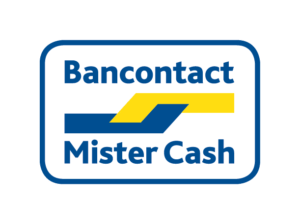Learn about the potential risks and symptoms of trazodone overdose in dogs, as well as the appropriate dosage for treating anxiety and other conditions. Find out how to recognize and respond to an overdose, and when to seek veterinary care.
Trazodone Dosage for Dogs Overdose
Trazodone, a commonly prescribed medication for humans, is also sometimes used in veterinary medicine to treat behavioral issues in dogs. While generally safe when administered correctly, an overdose of trazodone can have serious consequences for our furry friends. It is important for dog owners to be aware of the symptoms of trazodone overdose, as well as the appropriate treatment and prevention measures.
One of the first signs of trazodone overdose in dogs is excessive sedation. This may manifest as extreme drowsiness, difficulty waking up, or even loss of consciousness. Other symptoms can include vomiting, diarrhea, tremors, and an irregular heartbeat. If you notice any of these signs in your dog, it is crucial to seek veterinary attention immediately.
The treatment for trazodone overdose in dogs will depend on the severity of the symptoms. In some cases, the veterinarian may induce vomiting to remove the medication from the dog’s system. Activated charcoal may also be administered to absorb any remaining trazodone in the stomach. Supportive care, such as intravenous fluids and monitoring of vital signs, may be necessary to ensure the dog’s stability.
Prevention is key when it comes to trazodone overdose in dogs. It is essential to follow the prescribed dosage and administration instructions provided by the veterinarian. Never increase the dosage or frequency of trazodone without consulting a professional. Additionally, keep all medications securely stored out of reach of pets to prevent accidental ingestion.
Overall, being vigilant about the potential risks of trazodone overdose in dogs and taking appropriate precautions can help ensure the well-being of our beloved pets. If you suspect your dog has ingested too much trazodone, don’t hesitate to seek veterinary help immediately.
Understanding Trazodone
Trazodone is a medication commonly prescribed for dogs to treat various behavioral issues, such as anxiety, aggression, and separation anxiety. It belongs to a class of drugs called serotonin antagonists and reuptake inhibitors (SARIs), which work by increasing the levels of serotonin in the brain.
Serotonin is a neurotransmitter that plays a crucial role in regulating mood, sleep, and appetite. By increasing serotonin levels, trazodone helps to improve mood and reduce anxiety in dogs.
Uses of Trazodone in Dogs
https://mccartenlaw.com/doctor/where-to-buy-trazodone-over-the-counter.html
Trazodone is primarily used in dogs to manage behavioral problems, such as:
- Anxiety disorders
- Aggression
- Separation anxiety
- Noise phobias
- Hyperactivity
It can also be used as a short-term sedative to help dogs relax during veterinary visits or grooming sessions.
Administration and Dosage
Trazodone is available in tablet form and is typically administered orally. The dosage prescribed for dogs depends on various factors, including the dog’s weight, overall health, and the severity of the behavioral issue being treated.
It is important to follow the veterinarian’s instructions regarding the dosage and frequency of administration. Giving the correct dosage is crucial to ensure the medication’s effectiveness and to avoid potential side effects.
Possible Side Effects
While trazodone is generally considered safe for use in dogs, it can cause certain side effects. These may include:
- Drowsiness or sedation
- Stomach upset
- Dry mouth
- Incoordination or stumbling
- Confusion
If any of these side effects persist or worsen, it is important to consult a veterinarian.
Conclusion
Trazodone is a commonly prescribed medication for dogs with behavioral issues. It helps to manage anxiety, aggression, and other behavioral problems by increasing serotonin levels in the brain. However, it is important to administer the correct dosage and monitor for any potential side effects. Consultation with a veterinarian is essential to ensure the safe and effective use of trazodone in dogs.
Symptoms of Trazodone Overdose in Dogs
Trazodone is a commonly prescribed medication for dogs suffering from anxiety, aggression, or behavioral issues. However, if your dog accidentally ingests more than the prescribed dosage, it can lead to an overdose. It is essential to recognize the symptoms of trazodone overdose in dogs to seek prompt veterinary care.
1. Sedation: One of the primary effects of trazodone is sedation. An overdose can intensify this sedative effect, causing excessive drowsiness and lethargy in dogs. They may have difficulty staying awake or appear unusually sleepy.
2. Ataxia: Dogs experiencing a trazodone overdose may exhibit ataxia, which refers to a lack of coordination and unsteady movements. They may stumble, have trouble walking or standing, and show a lack of balance.
3. Hypotension: Trazodone can lower blood pressure in dogs, especially in overdose situations. Hypotension can manifest as weakness, pale gums, rapid breathing, or even collapse. It is crucial to monitor your dog’s vital signs in case of an overdose.
4. Vomiting and Diarrhea: Ingesting an excessive amount of trazodone can irritate the digestive system, leading to vomiting and diarrhea in dogs. These gastrointestinal symptoms may also be accompanied by loss of appetite and abdominal discomfort.
5. Tremors: Dogs may experience tremors or shaking as a result of trazodone overdose. These involuntary movements can affect various parts of the body, including the legs, head, or even the entire body.
6. Agitation and Restlessness: While trazodone is typically prescribed to calm dogs, an overdose can have the opposite effect. Dogs may become agitated, restless, and exhibit hyperactive behavior, pacing, or inability to settle down.
7. Changes in Heart Rate: Trazodone can affect heart rate and rhythm in dogs. An overdose may cause an irregular heartbeat, increased heart rate (tachycardia), or, in severe cases, cardiac arrhythmias.
If you notice any of these symptoms in your dog after a potential trazodone overdose, it is crucial to contact your veterinarian immediately. They can provide appropriate guidance and treatment to help your dog recover from the overdose and prevent any further complications.
Immediate Treatment for Trazodone Overdose
When a dog experiences a trazodone overdose, it is crucial to seek immediate veterinary care. Time is of the essence in treating an overdose and can potentially save the dog’s life.
If you suspect that your dog has ingested too much trazodone, do not induce vomiting unless specifically instructed to do so by a veterinarian. Instead, contact a veterinarian or an animal poison control hotline for guidance.
The veterinarian will perform an examination and may administer activated charcoal to help absorb the medication and prevent further absorption into the dog’s system. They may also induce vomiting or perform gastric lavage to remove any remaining trazodone from the stomach.
In severe cases, the dog may require intravenous fluids to maintain hydration and stabilize their condition. The veterinarian may also administer medications to control symptoms such as seizures, tremors, or difficulty breathing.
Throughout the treatment process, it is important to closely monitor the dog’s vital signs, including heart rate, blood pressure, and respiratory rate. The dog may need to stay hospitalized for observation and supportive care until they stabilize.
Remember, never attempt to treat a trazodone overdose at home without professional guidance. Prompt veterinary intervention is essential for the best chance of a positive outcome.
Preventing Trazodone Overdose in Dogs
Trazodone is a commonly prescribed medication for dogs to help manage anxiety and certain behavioral issues. However, it is crucial to use this medication under the guidance of a veterinarian and to prevent any potential overdose situations. Here are some steps you can take to prevent trazodone overdose in dogs:
1. Follow the Veterinarian’s Instructions
Always follow the dosage instructions provided by your veterinarian. They will determine the appropriate dosage based on your dog’s weight, health condition, and specific needs. Never exceed the recommended dosage without consulting your veterinarian.
2. Store Medication Properly
Ensure that you store trazodone and any other medications in a secure location that is out of reach for your dog. Avoid leaving medication bottles or pill organizers within your dog’s reach, as they may accidentally ingest excessive amounts.
3. Keep an Eye on the Dog
While your dog is on trazodone medication, it is important to monitor their behavior and response. If you notice any unusual symptoms or side effects, contact your veterinarian immediately. These may include lethargy, vomiting, tremors, or difficulty breathing.
4. Inform Your Vet of Other Medications
If your dog is taking any other medications, supplements, or herbal remedies, inform your veterinarian. Some medications can interact with trazodone and increase the risk of overdose. Your vet will be able to adjust the dosage accordingly or recommend alternative treatment options.
5. Regular Veterinary Check-ups
Regular veterinary check-ups are crucial to monitor your dog’s overall health and ensure that the dosage of trazodone is still appropriate. Your vet may need to make adjustments based on your dog’s changing health condition or if the medication is no longer needed.
6. Educate Yourself
Take the time to educate yourself about trazodone and its potential side effects. Familiarize yourself with the signs of overdose and know what to do in case of an emergency. This knowledge can help you identify any potential issues and seek immediate veterinary assistance.
By following these preventive measures, you can help ensure the safe and effective use of trazodone in treating your dog’s anxiety or behavioral issues. Always consult with your veterinarian for personalized guidance and advice.



